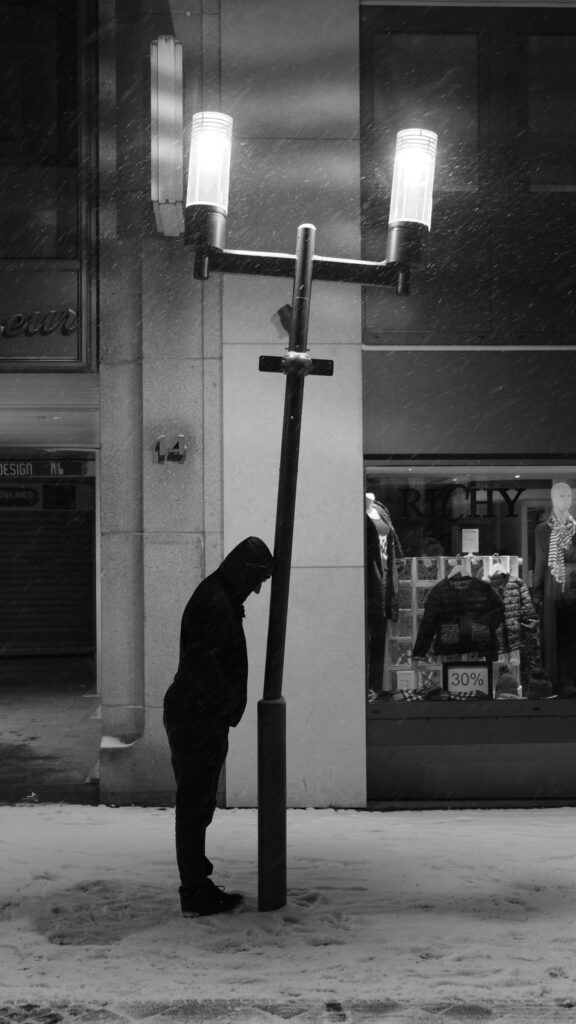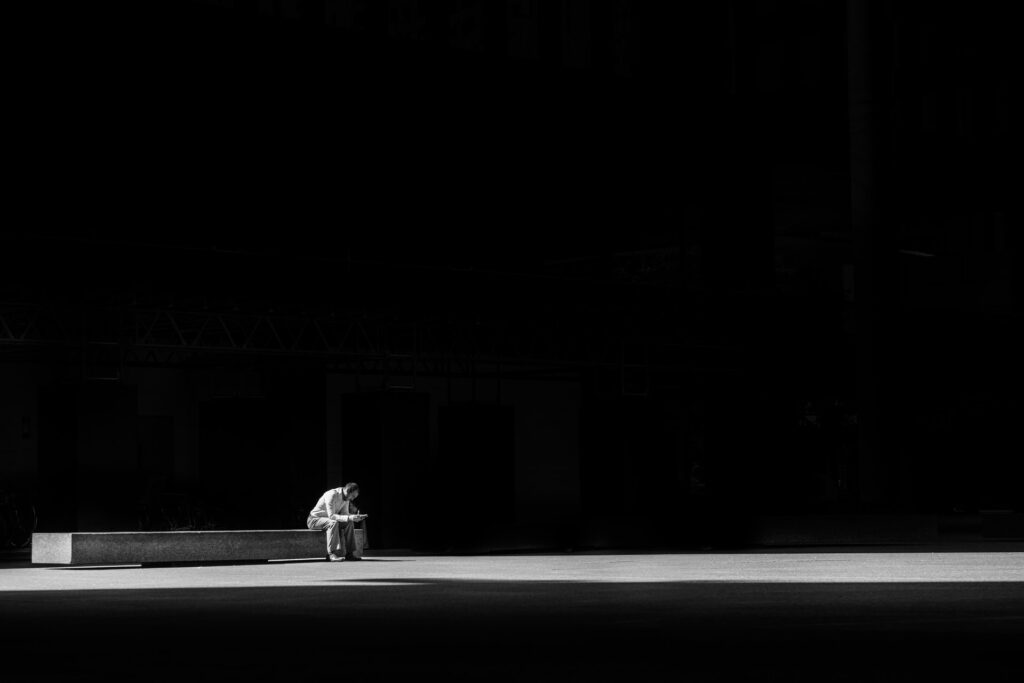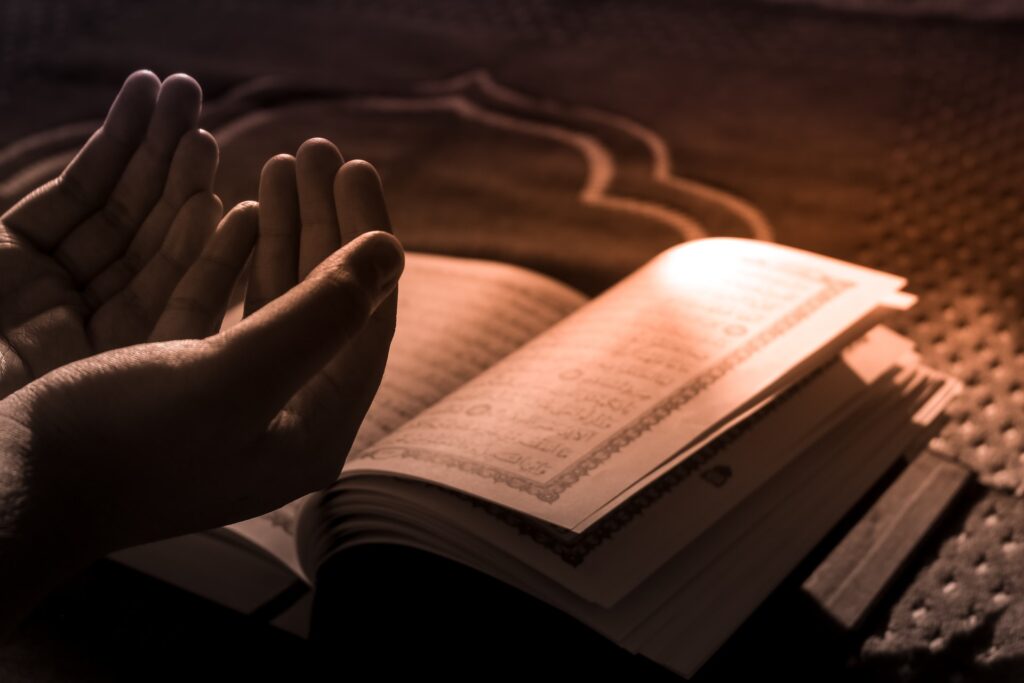In general, we define despair as the loss of hope, rarely as a necessary disease to connect with the divine.
In the nineteenth century, Soren Kierkegaard wrote his philosophical work “The Sickness unto Death”. It’s a penetrating dive into the depths of the mechanics of despair.
It’s mind-blowing. I’ve never read such a profound analysis of despair before.
We can retain two main ideas from his analysis.
The first is that despair is not a rare phenomenon. The second is that despair can turn to be an advantage if we take it the right way.
Moreover, despair is tricky. We might think that the only ones suffering from it are the ones who notice it.
Yes, but not only. An equally important form of despair goes unnoticed.
This is what makes the work of Kierkegaard unique.
By exposing us to the various forms of despair, we can be aware of it and take the direction of the cure.
For the more we feel our despair, the more we will be motivated to search for ways to overcome it.
As the philosopher Michael Watts wrote:
“It would be accurate to say that despair is the most precious sickness known to man, and so there is no reason to despair…if you are suffering from ‘existential despair’, since this is potentially your ‘ticket’ to freedom.”
Ps: On a side note, Kierkegaard uses the linguistic convention of his time. Man is used as shorthand for the generalized human being.
The Nature of Despair: a Spiritual Disorder
Traditionally, despair has been defined as the absence of hope.
Yet, according to Kierkegaard, despair is the consequence of the failure of the self.
It’s the result of misunderstanding who we actually are as human beings.
By ignoring our various components (earthly and divine), we create an imbalance that leads to despair.
So for Kierkegaard, despair is not a psychological disorder, like depression, but a spiritual disorder.
In other words, a person falls into despair when they fail to be fully a self; when they are unable to connect their physical reality with the spiritual one.
The concept of the sickness unto death means that despair doesn’t necessarily lead to physical death. Suicide for example is an extreme case.
Actually, despair is the experience of death, over and over, without being able to die.
When we are rooted in Earth and disconnected from our divine origins, our self is never completed.
Even if we can function in this world, despair comes under various forms to remind us of this missing connection.
And this is the best part of Kierkegaard’s work: the different forms of despair.
The two main categories are the unconscious despair and the conscious one.
After reading about the various forms, either you’ll recognize it in yourself, or you’ll recognize it in people around you.
The Unconscious Despair

“The common view, which assumes that everyone who does not think or feel he is in despair is not or that only he who says he is in despair is, is totally false.”
The unconscious despair is the despair of the unaware of their despair. It’s suffered by the ones who live a superficial and externally oriented life.
Kierkegaard makes the difference between two kinds of unconscious despairers: the sensualists and the system-builders.
The sensualists spend their life totally in pursuit of pleasure. They are pleasure-seekers who judge everything in terms of agreeable and disagreeable. They are at the lowest level of consciousness.
Kierkegaard used the metaphor of the house to illustrate the condition of the sensualists:
“Unfortunately, this is the sorry and ludicrous condition of the majority of men, that in their own house they prefer to live in the cellar…no, he loves that to such a degree that he becomes furious if anyone would propose to him to occupy the best floor which stands empty at his disposition—for in fact he is dwelling in his own house.”
The system-builder could be any sort of thinker. Anyone who lives in the realm of ideas–a scientist, a historian, a philosopher…
“A thinker erects an immense building, a system, a system which embraces the whole of existence and world history etc—and if we contemplate his personal life, we discover to our astonishment this terrible and ludicrous fact, that he himself personally does not live in this immense high-vaulted palace…If one was to take the liberty of calling his attention to this by a single word, he would be offended. For he has no fear of being under a delusion if only he can get the system completed.”
Is It Despair If We Are Unconscious of It?

If these two types of unconscious despairers don’t suffer from their despair, what is the problem then?
According to Kierkegaard, not being aware of despair is the worst form of despair.
How can you address something you are not aware of?
Despair is precisely to not being fully conscious of oneself.
Whether they lead a vegetative or successful life, their life is despair because they are incomplete.
The unconscious despairers don’t aim for full selfhood. Self-deception prevents them from seeking it.
They are so busy with the outward life- wealth, social status, popularity, good looks, power, pleasures- that they become spiritually poor and psychologically imbalanced.
Here’s how powerfully Kierkegaard describes the people in unconscious despair:
“By seeing the multitude of people around, by being busied with all sorts of worldly affairs, by being wise to the ways of the world, such a person forgets himself…dares not believe in himself, finds being himself too risky, finds it much easier and safer to be like the others, to become a copy, a number, a mass-man. Now this form of despair goes practically unnoticed in the world. Precisely by losing himself in this way, such a person gains all that is required for a flawless performance in everyday life, yes, for making a great success out of life.…Far from anyone thinking him to be in despair, he is just what a human being ought to be. Naturally the world has generally no understanding of what is truly horrifying. The despair that not only does not cause any inconvenience in life, but makes life convenient and comfortable, is naturally enough in no way regarded as despair.”
The Conscious Despair

Kierkegaard distinguished between the despair of weakness (not Willing to Be Oneself) and the despair of defiance (Willing to Be Oneself).
The Despair of Weakness
Within this category, we find the immediate man and the cynic.
Just like the sensualist, the immediate man is completely absorbed by earthly life.
The difference is that the immediate men are looking for the cause of their despair. But instead of looking inward, they are looking outward:
“He calls this despair. But to despair is to lose the eternal—and of this he does not speak, does not dream. The loss of the earthly as such is not the cause of despair, and yet it is of this he speaks, and he calls it despairing…. Meanwhile time passes. If outward help comes, then life returns to the despairer, he begins where he left off; he has no self, and a self he did not become, but he continues to live on with only the quality of immediacy.”
On the other hand, cynics are more conscious of their weaknesses and limitations. But instead of turning to God for help, they are busy despairing over their despair.
What the immediate man and the cynic have in common is that, instead of uncovering their true self, they wish to be someone else.
The Despair of Defiance
In the last category-the despair of defiance- we find the people with a higher level of consciousness. They know they are in despair and feel it more intensely.
But because they tried to soothe their despair and no relief happened, they become hardened to any form of help.
This person has no hope in earthly relief. The suffering becomes part of how they define themselves-a distinguish mark that places them above the ordinary people.
They are in a state of resignation, raging at anything that tries to take the pain from them. They are willing to be themselves but fail to do so because of their attitude.
“For to hope in the possibility of help, not to speak of help by virtue of the absurd, that for God all things are possible—no, that he will not do. And as for seeking help from any other—no, that he will not do for all the world; rather than seek help he would prefer to be himself—with all the tortures of hell, if so it must be.”
“He, the one man in the whole of existence who is the most unjustly treated, to whom it is especially important to have his torment at hand, important that no one should take it from him—for thus he can convince himself that he is in the right…Ah, demoniac madness! He rages most of all at the thought that eternity might get it into its head to take his misery from him!”
The Cure: Having the Courage to Despair

Without despair, losing one’s self might go unnoticed:
“The greatest hazard of all, losing one’s self, can occur very quietly in the world, as if it were nothing at all. No other loss can occur so quietly; any other loss – an arm, a leg, five dollars, a wife, etc. – is sure to be noticed.”
Two things are necessary for an individual to get rid of despair:
(1) One has to understand the nature of the self
(2) One has to find his ultimate cure in the source of the self—namely God
To start understanding the self, we need to shift our focus from the outward to the inward.
Having moments of solitude helps to do this shift. We start hearing our inner voice.
But our busy world doesn’t give much space to solitude:
“In antiquity as well as in the Middle Ages there was an awareness of this longing for solitude and a respect for what it means; whereas in the constant sociality of our day we shrink from solitude to the point that no use for it is known other than as a punishment for criminals.”
The Less-Traveled Road
Entering the silence of solitude can be scary–we might not like what we see.
But it’s a necessary work.
Before anything optimistic can emerge, we need to explore our darkness.
Only then we can find the cracks in ourselves that lead to a full selfhood.
As Leonard Cohen wrote:
“There is a crack in everything, that’s how the light gets in”.
The road to a full selfhood is not a straight line. The important is to keep moving in the right direction.
It’s like traveling from one city to another. We’re taking rights and lefts, changing speed, stopping, or even losing our way. But despite all that, we’re moving in the right direction.
In this journey towards our full selfhood, we start carrying the burden of our former self, increasing the weight little by little.
Just as muscles grow stronger with progressive weights, so does the self.
At the end of this road begins another one–strengthening our relation to the source of the self.
This whole process is the antidote to despair.
Final Thoughts: Despair in Islam

“Know yourself and you will know your Lord” as the saying goes.
Every one of our limbs has a purpose. Why so many of us think that we humans have no purpose behind our creation?
Our ultimate purpose is to complete the self by connecting it to the divine.
This connection happens when we become aware of our weaknesses and limitations. Then, we turn to Allah for help.
The opposite of this attitude is the one of arrogance.
It’s when we have this delusion about ourselves–that we suffice ourselves and we are out of need.
The result is despair, whether we are conscious of it or not.
When we neither know ourselves nor we know Allah, we fall into disbelief.
“…And despair not of relief from Allah. Indeed, no one despairs of relief from Allah except the disbelieving people.” [Quran 12:87]
Raise your hands
The story of Yunus (i.e Jonah) tells us what we can expect from Allah when we reach out to Him.
“And remember when the Man of the Whale stormed off from his city in a rage, thinking We would not restrain him. Then in the veils of darkness he cried out, “There is no god worthy of worship except You. Glory be to You! I have certainly done wrong. So We responded to him and saved him from the distress. And so do We save the believers.” [Quran 21:87/88]
Yunus is in a triple darkness- sea, night, and whale’s belly. What are his chances to survive? 0%.
Allah’s help doesn’t necessarily obey a rational process.
But when you turn to Him sincerely, the help comes.
Allah made His help available, not only to Prophets but to all believers: “And so do We save the believers.”
The help of Allah is not always as spectacular as the one given to the Prophets.
Nonetheless, it remains a miracle of the daily life.
It’s not written in any book. It goes unnoticed by the majority. But the one who tested knows the truth of it.
Allah is never far. The help is always near. And despair is only an alarm system to remind us to humble ourselves and to seek His help.
Article posted the 6 June 2021
Previous Articles
- Indulging in Helplessness
- Palestine: On The Importance of the Muslim Desire
- The Certainties of Muslims in Uncertain World
- Mongols Invasions: Some Forgotten Lessons to Today’s Muslims
- How to Enjoy Salat and Make it Meaningful
- How Muslims Have Responded to Western Society Dominance?
- The Future of Education: Better, Shorter, Cheaper?
- A Few Thoughts For Muslims
- The Blue Economy or How to Make Change Appealing
- Biomimicry: When Looking at the Creation Helps Solving Problems
- Scary AI and The Need For a Brain Optimization
- How the Prophet Transformed the Companions?
- Are Muslims Meant to Be Sleep Deprived?
- Muslims Judging Each Other: Why and How to Be Less Judgy
- Learning How to learn: The Foundation For Lifelong Learners
- 7 Lessons Lessons from Luqman that Will Make You Wise
- The Obstacles to Reading Books and How to Overcome them
- The One Habit

